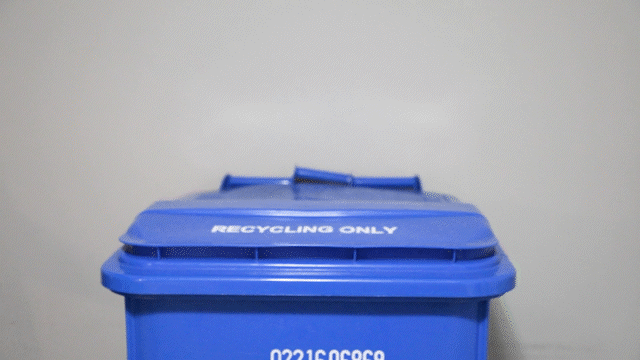After being shut down for several months earlier this year, the Gulf Coast is back in the recycling game.
“We are so excited to be back in business,” said Nathalie Bowers, the public information officer for the Emerald Coast Utilities Authority.
The ECUA is the recycling clearing house for a large chunk of the Gulf Coast, from Okaloosa County and Atmore to the east to as far west as Biloxi.
When the facility was forced to shut down in the spring due to an equipment breakdown, all of those communities were forced to either stop recycling pick-ups or continue to collect the material and dump it in the landfill. But as of October 3, it’s full speed ahead and ECUA is back in the recycling game.
“The first day that they accepted (recyclables) back, Santa Rosa County was on board. We were there, sending materials the first morning they were open,” said Kaz Szymoniak, the environmental manager for Santa Rosa County.
Santa Rosa County has been recycling since the 1980s. The process has changed a bit over the years.
“When it first started out (there were) inmate labor squads,” said Szymoniak. “It was all hand-sorted, picked out. We had bins across the county, and we did more of a separated material (process), where cardboard and paper went in one side, cans, bottles, (and) glass jars went into another. We were able to sort through those, bale up the cardboard and paper, and pull out the recyclable material by hand. But now we go to what they call a single-stream, where everything is comingled in the same recycling bin.”
All of those commingled recyclables from Santa Rosa County, as well as all the other municipalities served, goes to ECUA.
So now that the system is back up and running, let’s go over the rules for your recycle bin.

Plastic soda bottles and milk bottles and laundry detergent bottles and, well basically all plastic bottles. All good.
Those cardboard milk and ice cream cartons, not so much. Cardboard liquid and food containers that are coated in wax cannot be recycled. That means juice boxes, too. But just about every other kind of cardboard can be, like cereal and pasta boxes. Newspapers and inserts, too. But not paper towels or tissues or baby wipes.

One important rule to remember is that when you get back from the grocery store, do not put your single-use plastic bags in the recycle bin. They cause shenanigans at the recycling plant.
“What happens with plastic bags at the plant is that they can really tie up and become a problem in the equipment,” said Bowers. “There are other (items that do that too) like linens and clothing. All of that is not recyclable. Garden hoses and window blinds, those kinds of things can really just make a mess of the equipment.”
Those single-use plastic bags should be returned to the grocery store for recycling.
Other things that you can pop into your recycle bin are aluminum cans and bottles, tin and steel cans and lids — even old metal pots and pans. And glass. Any color glass bottles or jars are accepted. Old drinking glasses, too. But not crystal stemware, or any car or home window glass.

In practice, there is a lot of stuff that people put into their recycle bins with the best of intentions, but the material just cannot be recycled. Things like aluminum foil, polystyrene or Styrofoam, plastic or metal hangers even bubble wrap. They’ve got a name for that.
“A lot of that is ‘wish-cycling,'” said Szymoniak. “Where people want to believe they can recycle (an item, but they really can’t).”
Hazardous items are often found in recycle bins, which can and have caused major problems.
“The toughest ones to deal with are, of course, those that are flammable and that could, potentially, cause fires,” said Bowers. “(That) happed last summer when we were down for three months. Lithium-ion batteries, ashes from barbeques, all of these things that can smolder (and) ignite, either on a truck or in the facility when they are in piles of recyclables. It can cause a problem and, in fact, it really is a nationwide issue.”

Also on that list of dangerous items that should not be in your bin are propane tanks, aerosol cans, construction materials, and medical waste.
For a full list of the rules of the recycling game go to livegreenecua.com


